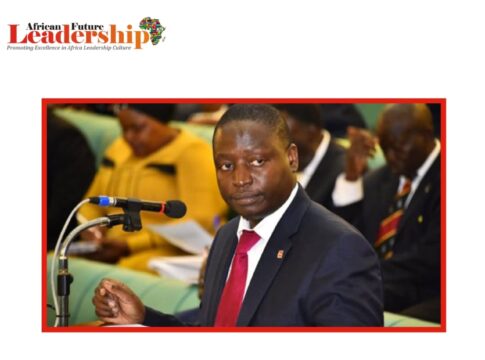Uganda’s state minister for Trade, David Bahati has said that no new factories will be allowed to be built in the wetlands.
Bahati said the Ugandan government has finalized investment regulations that ensure no company will operate on wetlands. He said this during a speech at the recent Economic Mkutano, an annual discussion on the economy held at the Mestil Hotel in Kampala.
Bahati said: “We have a policy in place to make sure that we protect the environment in several ways. For one to set up a factory in the 22 industrial parks across the country, one must respect both sustainable and green economies. Also, the technology that we import to deploy in these industrial parks must be cognizant of the green economy. The production that we engage in must have procedures that protect the environment.”
He added: “We are cognizant of the fact that as we grow the economy, the issue of the environment must be at the core of our development agenda. Within a few weeks, the president will inform the country how to protect and utilize both our environment and wetlands. We want to ensure that we have green industrial parks through the deployment of new technologies. This shall ensure that the economy is sustainable. We shall need the private sector to walk this journey of a green economy with us”.
The Ugandan government has been criticized for its lack of involvement in environmental issues. Wetland invaders are being slowly caught across the country at the expense of the environment. Most of the wetlands have been invaded to get large amounts of rice, hotels, offices and residences, and others.
READ MORE: 2023 elections: Nigerians in diaspora advocate policy that will allow them to vote
In August 2022, President Museveni ordered Chinese citizens planting rice in wetlands to leave immediately. It is the fifth time the president has ordered rice farmers and companies to avoid wetlands.
From 2019 to date, Museveni has issued more than five orders for rice farmers and companies to relocate, but with little success. The President has ordered the arrest of the government officials who have confiscated the wetlands for private developers. However, no one has been arrested and no land license has been revoked since then.
“When we got in touch with the Chinese, they introduced a culture here that our people didn’t know. The culture of growing rice in swamps. I don’t know what swamps they use in Asia but here what they call swamps are tributaries of River Nile. When you grow rice in the swamps, you are committing a big crime. This must stop!” Museveni said.
Commenting on the delayed vacation of wetlands by encroachers, Bahati said, “It is a process to protect the environment. There has to be a balance between livelihood, economic growth and environmental protection. That debate has been on. We hope that the struggle to maintain our environment shall prevail.”
Speaking at the same event, Damali Ssali, the chief programmes and projects officer at the Private Sector Foundation Uganda (Psfu), argued that while it is important to protect the environment during production, there are things that the private sector, especially small and medium enterprises (SMEs), do not have the capacity to do.
“Many SMEs are not aware that they can access and operate in the industrial zones, which would make green production cheaper. There’s a misconception that these industrial zones are meant for large foreign investors. Government should consider going for low credit facilities from international climate funds. This can be used to support the private sector.”
Responding to the need for affordable credit facilities for SMEs, Bahati advised that the private sector utilizes low credit facilities offered by the Uganda Development Bank (UDB).
“The government has injected approximately Shs 420bn into UDB. The private sector can access this credit facility at low interest rates. The commercial banks should also follow suit and drop the interest on loans and make them affordable.”
In 2017, the government launched the Uganda Green Growth Development Strategy (UGGDS), to set the path for achieving sustainable economic growth and to operationalize Uganda’s many green growth goals. This will ensure the achievement of the much-desired Vision 2040.
These Green Economic Zones (GEZ) offer private sector investors unique opportunities to invest in sectors such as renewable energy, sustainable agriculture, tourism and sustainable industrial practices. In addition, the government has completed the guidelines for the operation of the green area and put an opportunity for private companies.




